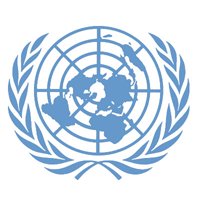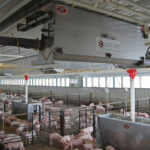Africa Industrialization Day
Africa Industrialization day strives to bring global media awareness to the challenges that face Africa’s progression towards becoming a more industrialized nation. In 1989, the United Nations general assembly proclaimed November 20th as Africa Industrialization Day. The observation of this...
Africa Industrialization Day
Africa Industrialization day strives to bring global media awareness to the challenges that face Africa’s progression towards becoming a more industrialized nation. In 1989, the United Nations general assembly proclaimed November 20th as Africa Industrialization Day. The observation of this... Africa Industrialization day strives to bring global media awareness to the challenges that face Africa’s progression towards becoming a more industrialized nation. In 1989, the United Nations general assembly proclaimed November 20th as Africa Industrialization Day. The observation of this day is managed by The United Nations Industrial Development Organization (UNIDO). UNIDO is heavily invested in assisting Africa with its continued development of new technology, infrastructure, and mechanization.
Africa Industrialization day strives to bring global media awareness to the challenges that face Africa’s progression towards becoming a more industrialized nation. In 1989, the United Nations general assembly proclaimed November 20th as Africa Industrialization Day. The observation of this day is managed by The United Nations Industrial Development Organization (UNIDO). UNIDO is heavily invested in assisting Africa with its continued development of new technology, infrastructure, and mechanization.
As we explore ways to support our growing population, many believe that Africa may hold the key to finding a solution. According to the Food and Agriculture Organization of the United Nations (FAO), 15% of the world’s arable land is located in Africa. As of today, it is estimated that 86% of this land remains unutilized. However, through training in efficient farming practices and technology, farmers in Africa can be enabled manage this fertile land. In order for professional farming to succeed in Africa, governments and members of the private sector must work together and invest in Africa’s future.
AGCO understands the potential solutions that Africa may provide in our mission to address global food scarcity. That is why we are committed to investing USD 100 million for the development of Africa’s agriculture. AGCO’s Zambia model farm and training center will teach general mechanization to small and medium scale farmers, and provide training to large scale farmers on how to operate high specification tractors. Jason Burbidge, our General Manager of AGCO Zambia, states that “While there is no one solution to address food production and food security, AGCO is right at the heart of a sustained and carefully planned effort, developing capabilities that will help ensure farmers know how to produce food efficiently and responsibly.”
There is no doubt that growing Africa’s agricultural sector will be challenging. Earlier this year, AGCO hosted its first Africa Summit. Discussions took place about the challenges facing Africa’s agriculture, and ideas for managing them were shared. We look forward to reporting back on the progress that we and our partners have made for Africa’s agriculture.
Africa’s population grows towards 2 billion people, it is evident that further industrialization and development in agricultural must take place for the country to sustain itself. In order for this to happen, commitments must be made by governments and organizations globally. Learn more about AGCO’s contribution to sustainable development in the 2011 AGCO Sustainability report (page 41).



